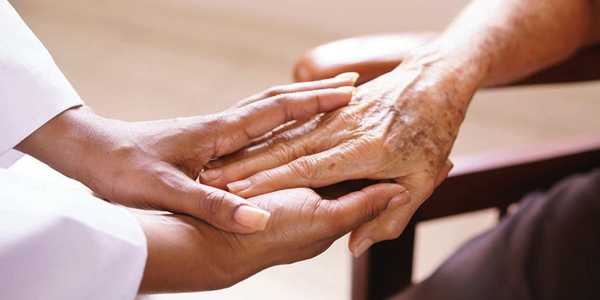With the growing need for elderly care, planning ahead is essential. This guide offers insights into medication management, family support, housing, and maintaining social connections, helping you provide the best care for your aging loved ones while preserving their dignity and happiness.
Start the Conversation Early
Open communication within families is crucial in addressing care needs before a crisis arises. It's important to discuss preferences regarding living arrangements, medical care, and finances. Families should ask: What are Mom’s living preferences? How does Dad want to make medical decisions? Have we explored all financial options for their care? The conversation helped ease concerns, leading them to make necessary home modifications and assign a healthcare proxy, which provided reassurance and support.
Smart Medication Management
Managing medications effectively is vital to preventing health complications in seniors. Digital reminders and smart pill dispensers can help ensure timely medication intake and reduce the risk of missed doses. Regular reviews with healthcare professionals are also important to ensure that medications remain effective and aligned with changing health needs. By prioritizing medication management and using technology, caregivers can improve health outcomes and promote safer aging.

Legal & Financial Security
Establishing a secure legal framework is essential for respecting and carrying out an elderly person’s preferences. Key legal documents such as Powers of Attorney, wills, and healthcare directives should be in place. A Power of Attorney assigns trusted individuals to make decisions on behalf of the elder if they can no longer do so. Wills detail the distribution of estates, while healthcare directives guide medical decisions. Regularly reviewing insurance policies and pension plans ensures financial stability. Consulting with legal and financial professionals helps ensure that all legalities are addressed, maximizing benefits for the elderly’s security.
Building a Family Support System
Sharing caregiving responsibilities among family members is key for sustainable care. Begin by discussing each member’s strengths, schedules, and preferences to divide tasks without overwhelming anyone. Digital tools like shared calendars or apps such as Cozi and FamilyWall help coordinate schedules and track responsibilities efficiently. Effective communication and emotional support among family members also create a healthy environment, reducing stress and fostering a collaborative caregiving journey.
Exploring Home Care & Assisted Living Options
Elderly care offers various options, including home care services, live-in care, and assisted living facilities. When evaluating these choices, it’s important to balance budget constraints with medical needs. Home care allows seniors to stay in familiar surroundings with personalized assistance, while assisted living facilities provide a social environment and extensive support. Trial stays at facilities can help determine comfort and fit, aiding in long-term decision-making aligned with the senior’s lifestyle.
Home Adaptations for Comfort & Accessibility
Creating a safe, accessible living space promotes independence and prevents accidents. Installing grab bars in high-risk areas and choosing non-slip flooring can reduce fall risks. Proper lighting enhances visibility, and regular decluttering improves mobility. These adaptations not only make living easier but also foster a supportive environment for seniors aging in place.
Encouraging Social Interaction & Mental Stimulation
Social interactions greatly benefit seniors’ mental health. Senior clubs or online groups offer companionship while stimulating cognitive function through shared activities. Regular family visits and outings help combat isolation and boost happiness. Encouraging lifelong learning opportunities, such as digital literacy courses, also promotes mental engagement and self-esteem. Social connections and continuous learning are vital for keeping seniors vibrant and active members of their communities.

Leveraging Technology for Safety & Independence
Technology can significantly enhance seniors’ safety and independence. Personal alarm systems provide immediate help in emergencies, while motion sensors detect unusual activity and notify caregivers of potential issues. Smart home devices offer convenience, including automatic lighting and temperature control. Wearable health devices monitor essential metrics, helping seniors track their health and stay connected with family members. Video communication tools reduce loneliness and strengthen relationships with loved ones.
Emergency Preparedness & Health Monitoring
Emergency preparedness improves response times and safety. An emergency kit should include medical records, vital contacts, medications, a flashlight, and first-aid supplies. Regular health check-ups help detect potential issues early, preventing complications. A checklist for an emergency kit includes:
Medical records and prescriptions
Emergency contacts
First-aid supplies
Flashlight and batteries
Medications
Non-perishable food and water
Personal hygiene items
Being prepared truly saves lives!
Caring for the Caregiver
Caregivers face significant challenges, leading to physical and emotional exhaustion. Taking regular breaks is crucial for recharging. Joining support groups provides valuable connections with others facing similar experiences and offers effective coping strategies. Self-care practices like exercise, mindfulness, and hobbies can improve caregivers’ health. Recognizing the importance of caregiver wellness helps prevent burnout, ensuring that they can continue providing compassionate care.
The Path Forward
In conclusion, proactive and compassionate caregiving is essential for the well-being of elderly loved ones. By emphasizing open communication and education, we strengthen family bonds and improve care quality. Let us continue supporting one another in this vital caregiving journey, ensuring that our elderly family members receive the dignity and joy they deserve in their later years.
